RHI: Significant criticism of individuals and groups likely
- Published
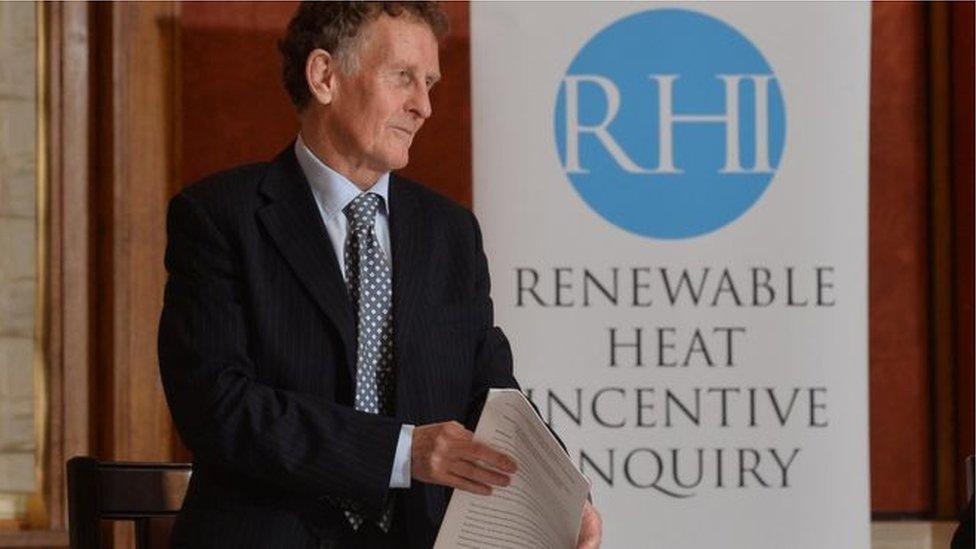
Sir Patrick Coghlin has not yet committed to a date for publication of his final report
The RHI inquiry has closed with a warning from the chairman that some individuals and organisations are likely to face significant criticism in his final report.
Sir Patrick Coghlin has not set a date for its publication.
He said he would have to consider what "fairness requires, in respect of those who may ultimately be criticised".
It is believed to be a reference to whether or not rights of reply will be offered before publication.
Earlier this week he said he was not minded to offer them because it would delay the publication date.
He said the report would be completed "as soon as reasonably possible" given the huge volume of evidence to consider.
The inquiry was told the process of evidence gathering and publication would continue and that further public hearings were possible, though it is likely that the bulk of the work now will be done behind closed doors.
Civil servants role
The inquiry was set up last spring, with oral hearings starting last November.
It has been in session for 114 days of evidence gathering.
On the final day, the panel heard closing submissions from lawyers for two separate teams of civil servants in the Department for the Economy.
One of them looked after the introduction of the scheme in 2012 and the other was in charge when it ran into huge trouble three years later.
Barrister Jeremy Johnson, representing the 2015 contingent, opened his remarks with an implied criticism of former Economy Minister Arlene Foster.
He said the civil servants acknowledged they had made mistakes and were not trying to shirk what they had done.
"They're not dancing around on the distinction between responsibility and accountability. They accept both," he said.
That was a clear reference to the earlier evidence of Mrs Foster, who said she was "accountable but not responsible" in respect of some aspects of the failed scheme.
Mr Johnson was also highly critical of Mrs Foster's party colleague Simon Hamilton.
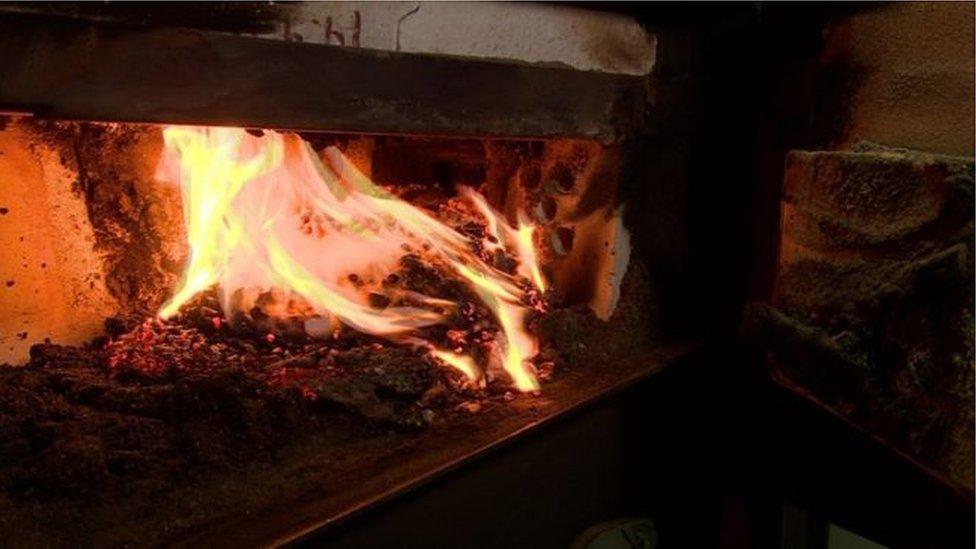
The RHI scheme was established to encourage uptake of eco-friendly heat systems over the use of fossil fuels
He had been party to a plan by DUP special advisers (Spads) to leak emails to the media showing that departmental officials had been telling people in the boiler industry about upcoming cuts in boiler tariffs in the summer of 2015.
'Gross betrayal' of trust
It was blamed for contributing to the huge spike in RHI applications that autumn which overwhelmed the scheme budget.
At the time of the leak in early 2016 the DUP was under huge pressure over the role of one of the Spads, Andrew Crawford, in the debacle.
The inquiry heard that the leak was intended to take the pressure off Mr Crawford by diverting media attention to the role of civil servants.
Mr Johnson said Mr Hamilton's actions had been a "gross betrayal" of the trust that should operate between ministers and officials.
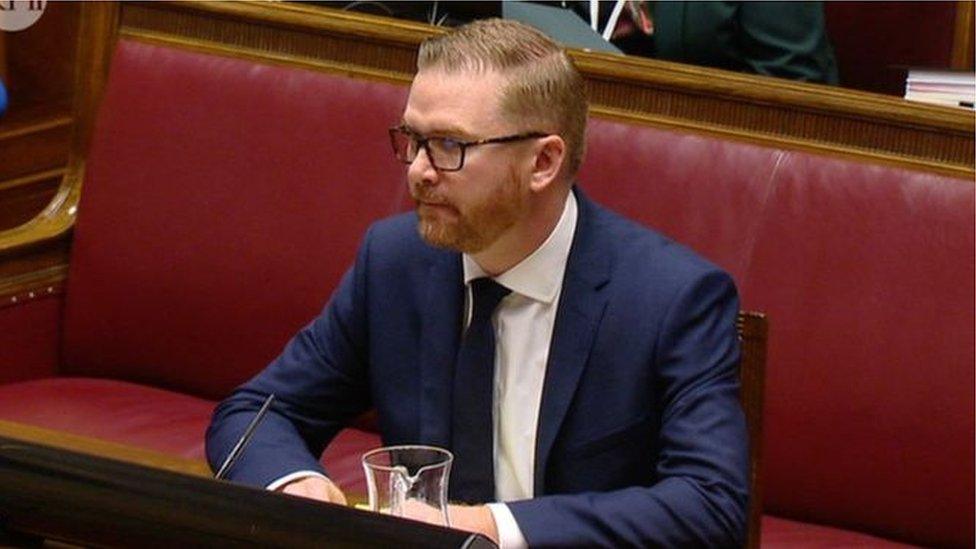
The actions of former DUP minister Simon Hamilton were described as a "gross betrayal" of the trust between ministers and officials
He suggested they amounted to a breach of the principles of public office by which ministers are bound.
Mr Johnson also said it was wrong that the Department for the Economy still seemed to be considering disciplining a number of officials over their role in the affair.
He said the problem had been much wider than that, an institutional failing, characterised by errors at every stage in the process from scheme inception to collapse.
He said his clients had been hard-working civil servants.
"They were not burning to earn, nor were their families. All they were burning was the midnight oil," he said.
'Incompetent system'
He described as a "convenient narrative" the notion that the whole mess had been down to human error on the part of a couple of officials.
If that were allowed to take hold he said "the righteous indignation of the public could be sated and the persons could be hung, drawn and quartered and any wider systemic problems of what was an incompetent system could be swept under the carpet".
He said the system had been lacking basic checks and balances or any kind of a safety net.
He said that was clearly acknowledged when held against the extensive reforms now being discussed to stop something like RHI happening again.

Arlene Foster gave evidence to the RHI Inquiry
In evidence earlier on Friday, a lawyer for civil servants who oversaw the RHI scheme's implementation insisted Arlene Foster decided to proceed without cost controls.
Barrister Peter Coll QC said there were no minutes of a key meeting in June 2012 during which she was briefed.
Mrs Foster was the minister at the Department of Enterprise when it set up the flawed green energy scheme in 2012.
She has denied that she was alerted by officials to the dangers of proceeding without cost controls.
However, Mr Coll said she was told in person by Fiona Hepper, who headed up the energy team in her department at the time.
He said there had been an "unfortunate casualisation" of contact between the minster and her officials, which resulted in a lack of a written record.
RHI 'only show in town'
Mr Coll said a suggestion by Mrs Foster's special adviser Andrew Crawford that officials had withheld information from the minister because they had worked hard on the RHI scheme and favoured it over other options "made no sense".
He said for various reasons, as far as the politicians were concerned, the RHI scheme was the "only show in town".
Mr Coll said because RHI would provide a long-term incentive for the renewables industry using Treasury cash, it was an attractive option politically.
That, combined with the fact that a grant type scheme would have had higher administration costs that would have to come out of the departmental budget, made it the obvious choice for the minister.
- Published26 October 2018

- Published24 October 2018
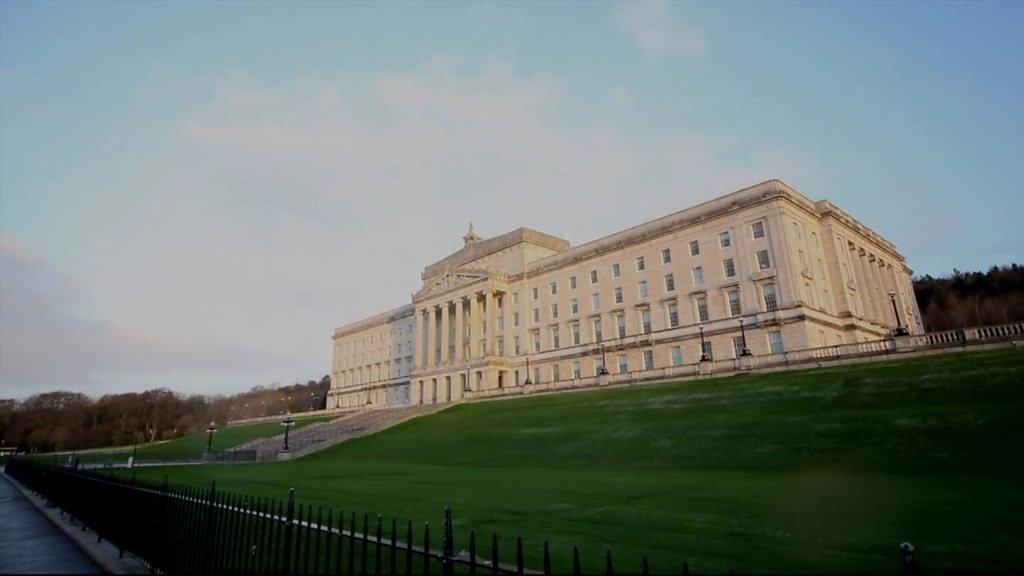
- Published23 October 2018
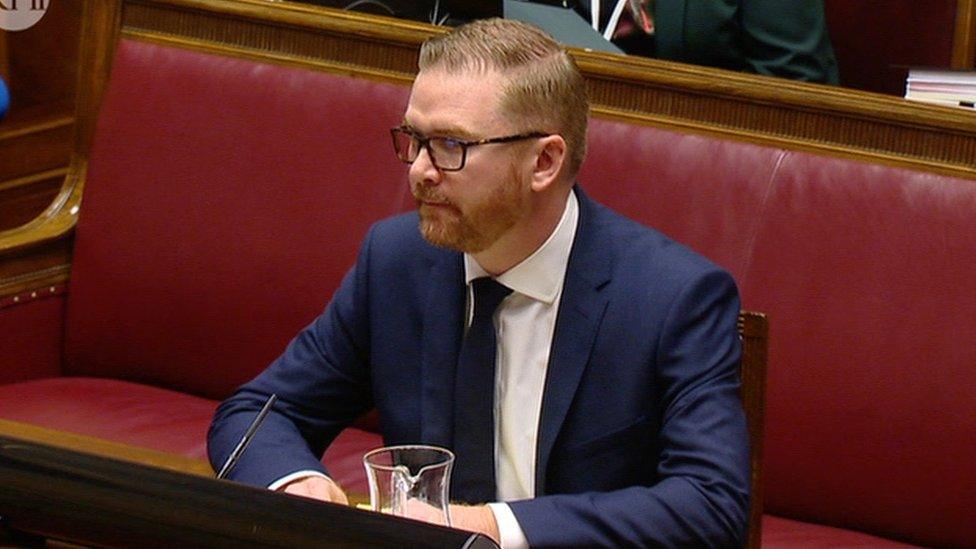
- Published10 October 2018

- Published5 October 2018

- Published5 September 2018
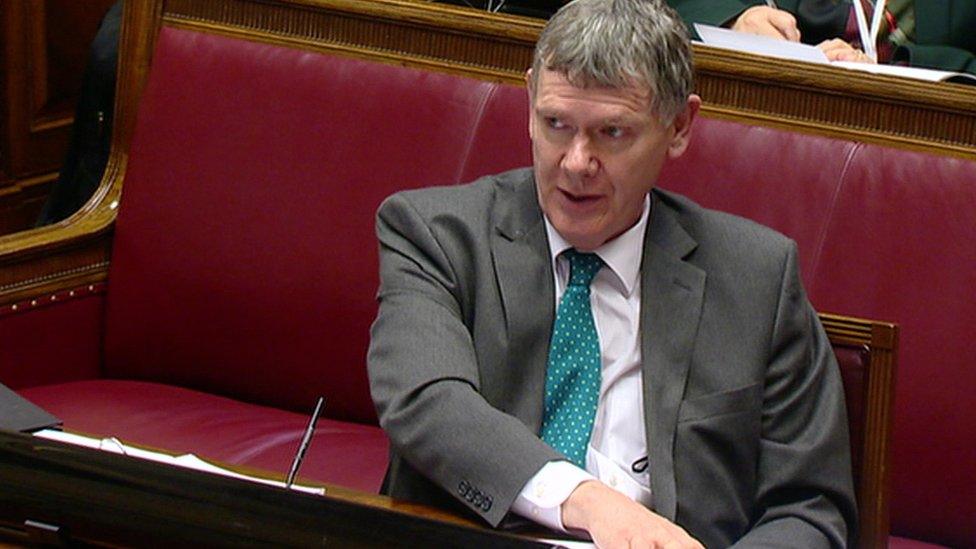
- Published4 September 2018

- Published23 October 2019

- Published7 November 2017
